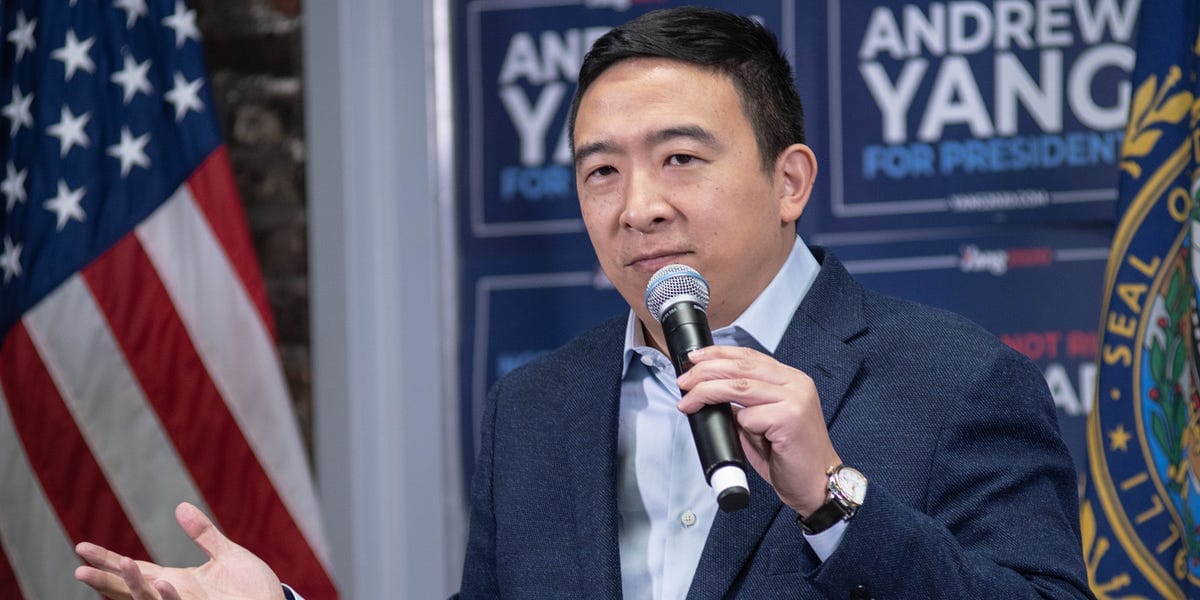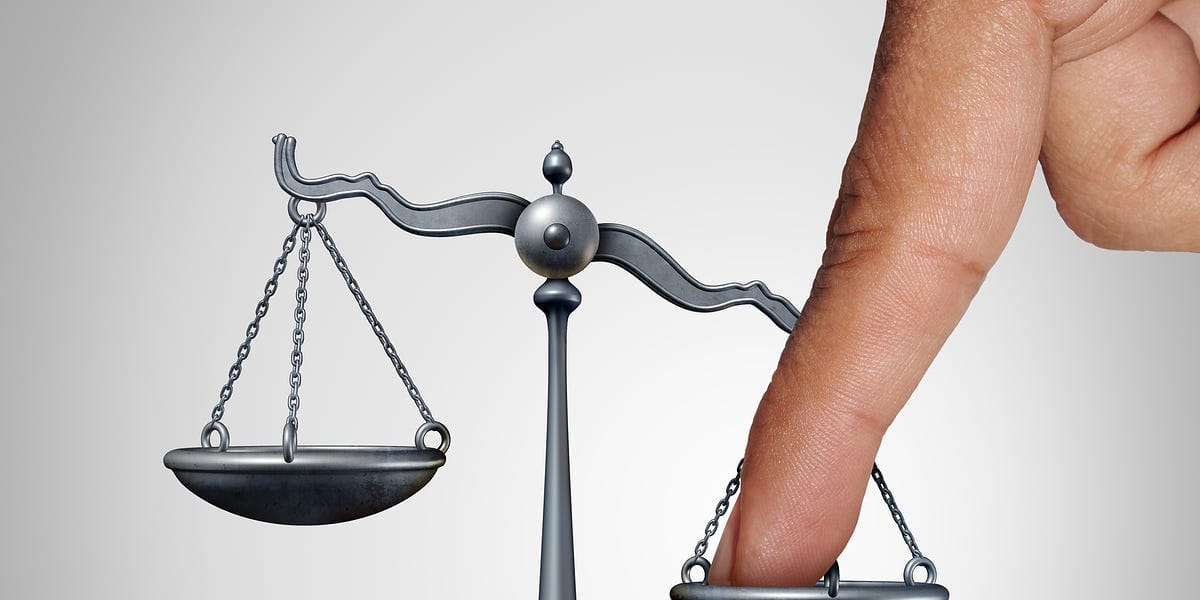Run on Vision, Not Just Resistance: Mamdani's NYC strategy
Free childcare and buses. Cheaper groceries. Lower rents. Whether or not you support Zohran Mamdani, who won the Democratic primary

Our previous post shared Gil's recent San Francisco Chronicle op-ed that explained how right-wing tech interests are masking their politics with the "moderate" label. What's happening in San Francisco is important because wealthy tech interests are trying to shift one of most Democratic cities in the United States toward regressive Republican policies. They see San Francisco as a laboratory where they can experiment with tactics and strategies that can be used elsewhere. That's why we must pay close attention to what's happening in this deep Blue city, where last week tech leaders – some who claim to have been Democrats – hosted a fundraiser for authoritarian criminal Donald Trump.
Below, we take take a deeper look at how the "moderate" label is being used to mask extreme right-wing politics.
“Moderate” has become a key word in San Francisco politics as a movement funded by wealthy tech interests campaigns to undermine progressive power at City Hall. But there’s a big problem with words like "moderate" and "centrist": They mean different things to different people. As such, they lack any real definition or meaning.
For example, Nikki Haley was often described as moderate. Yet the Republican former presidential candidate wouldn’t get many votes in San Francisco. Neither would Elon Musk, who has called himself both a “centrist” and a "moderate" while simultaneously acting a superspreader of right-wing ideas and conspiracy theories.
More to the point: Both Haley and Musk are now backing Donald Trump's 2024 presidential campaign. Clearly, they have simply been trying to mask their extreme authoritarian politics as "moderate."
But moderate and centrist are "political weasel words." Their definitions vary widely because there is no such thing as a moderate or centrist ideology. There is no united “middle” or “center” in politics, no single set of ideas on which all moderates or centrists agree. Some support abortion rights, but others oppose them. Some support marriage equality, but others don’t.
These terms obscure, rather than reveal, political beliefs. They are misnomers often used to describe a segment of voters called “biconceptuals”: people who are conservative on some issues and progressive on others. But this ideological mix differs from issue to issue and person to person.
To decode the politics of the biconceptual brain, you must understand the connection between moral identity and political ideology. Your moral identity determines your politics. Unsurprisingly, conservatives and progressives have vastly different versions of morality.
Biconceptuals, however, have both versions of morality in their brains. San Francisco’s so-called Democratic "moderates" – that is, biconceptuals – use the conservative parts of their brains when thinking about issues like public safety and homelessness.
On crime, they reject police reform and criminal justice reform. On drug addiction, they favor cruel measures like jail and forced treatment. On homelessness, they want to make unhoused people feel “uncomfortable.”
These positions align clearly with Republican ideology. In fact, they’re indistinguishable from the platforms of Republicans like Ron DeSantis and Trump. But San Francisco’s biconceptuals reject such comparisons. They say their support for harsh policies simply reflects “common sense.” But that’s another slippery term with no clear definition – one often used by Republicans to defend their policies.
Think about it: Most Republican policies don’t match the Democratic definition of sensibility. On women’s rights and LGBTQ rights, Republicans support restricting freedom and imposing their religious views. On guns, Republicans believe in the right to own military-grade weapons, but not the right to live free of gun violence. On climate, Republican leaders reject science in the face of a growing catastrophe. On democracy, most Republicans don’t believe Joe Biden won the 2020 election – and they want to restrict voting rights.
Few Democrats agree with these positions. After all, these ideas go against evidence, fact and reason. The same is true of Republican approaches to crime, addiction and poverty.
Decades of data show that brutal policing and mass incarceration don’t work. As California learned during its long experiment with mass incarceration, draconian approaches actually increase crime. In response, the state enacted major criminal justice reforms to reduce the prison population, and crime rates have reached historic lows in the post-reform era. Meanwhile, Republican states with “tough on crime” laws have some of the highest crime rates in the nation.
Likewise, cruel and punitive policies don’t solve drug addiction. The drug war has failed everywhere it has been tried. Jailing addicted people only increases the overdose death rate. Besides, there are plenty of drugs in jail.
In addition, Republican states have the highest overdose rates, a fact that never gets mentioned on the right-wing propaganda channels that portray the overdose crisis as unique to San Francisco.
In contrast, countries that have successfully reduced drug addiction did it by emphasizing treatment and overdose prevention, reducing stigma and, in some cases, even offering prescription heroin. England, Portugal and Switzerland now treat addiction like a public health problem, but only after they spent decades trying to solve it with harsh punishment.
Cruelty will also fail to solve homelessness. Despite decades of attempts to bully, criminalize and harass the unhoused out of existence, their population continues to grow exponentially.
Republican policies yield terrible results. So why do so-called moderates want to enact these policies? It’s because they view certain issues through the lens of their conservative morality.
In the conservative moral worldview, problems like addiction, crime and poverty result from individual failures and shortcomings. Bad behavior must be strongly punished – just as a strict parent might spank a child for misbehaving. In the conservative brain, it doesn't matter whether a policy is effective. Strict punishment is seen as right because it is considered morally correct. Facts and evidence to the contrary don’t matter.
In the progressive moral worldview, social ills stem from systemic issues in society. As such progressives favor solutions rooted in empathy and understanding. To continue the parent metaphor, progressive morality is that of a “nurturant parent” who generally prefers more constructive approaches to create pro-social outcomes for the public good. Evidence and facts matter – a lot.
Some voters are genuinely confused about their moral identity and have trouble deciding. Much effort goes into persuading these swing voters to pick a side.
This is what is happening in San Francisco right now, as tech zillionaires with authoritarian politics try to make Democratic voters embrace failed Republican policies as commonsensical.
Unfortunately, they have had some success in co-opting San Francisco's biconceptuals. As Gil wrote in his San Francisco Chronicle op-ed:
A group of wealthy tech figures with right-wing beliefs is investing heavily to push the city’s political compass to the right. To do this, however, they are partnering with a group of traditionally moderate Democrats who are happy to find themselves lavished with money and support.
The tech figures behind this campaign see it as a model they can use in other places. The plan is simple: Identify a serious public policy challenge, blame all failure on progressives, create a hyper-polarized political discourse and push Democrats to embrace regressive ideas.
This is pretty much the same playbook Republicans have been using for decades to frame the issues and control the narrative. Republicans have often succeeded in getting Democratic politicians and voters to accept Republican frames. They do this by constantly repeating their frames, and getting others to repeat their frames, until those frames seem like "common sense."
San Francisco has serious challenges, but regressive Republican policies are not the answer. Neither are they moderate in any sense of the word. To do something “in moderation” is to avoid extremes on either side. But it’s quite extreme to push failed right-wing policies designed to treat poverty and illness with more pain.
In 2024, we should reject meaningless frames like centrist and moderate. Instead, examine the moral views underlying each candidate and proposal.
Are they rooted in a morality of Republican strictness or Democratic empathy?
Does the evidence suggest their policy approaches are effective or ineffective?
What are the moral politics of the people funding the campaign? Are they progressive or regressive?
Then vote your values.
Biconceptualism is common in politics. But instead of describing such politics as some mythical "middle" or "moderate" position, we have to understand what it really means to be have both systems of morality in your brain. If we continue to apply a wrong or meaningless label, we'll continue to gravely misunderstand what's really going on.
For more information:
George Lakoff on "The Myth of the Moderate."

From 2022: Why Andrew Yan's 'moderate party' is doomed to fail.

From 2022: Where is the middle ground between authoritarianism and democracy?
Subscribe